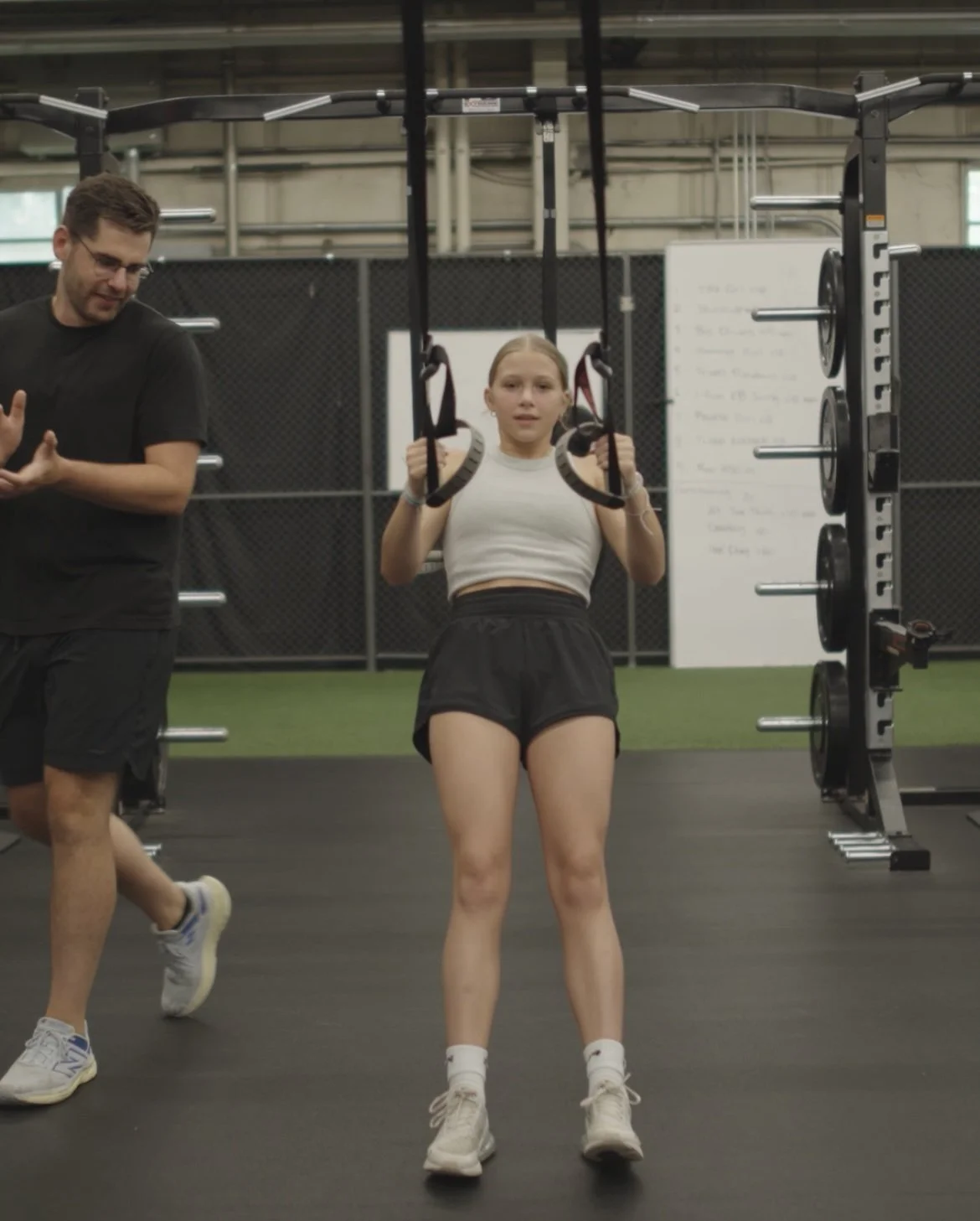Training During Puberty
What Every Girl Athlete Should Know
Going through puberty while playing sports can feel confusing. One day you feel fast and strong, and the next, everything feels... off. That’s totally normal and you’re definitely not alone.
As your body changes, it’s important to understand what’s happening and how to train in a way that supports you, not stresses you. Let’s break it down!
What’s Going On During Puberty?
During puberty, your body starts to grow and change fast. You might notice:
Your hips getting wider
Your body adding more fat (especially around your thighs or stomach)
Your breasts developing
Your period is starting
You feel more tired, emotional, or just different
You might also feel less coordinated or slower in your sport, even if you’re working just as hard. Don’t worry! Your body is just learning how to move in a new way.
Why You Might Feel “Off” in Sports
Here’s why sports can feel harder during puberty:
Your center of gravity shifts because of breast and hip growth
Your joints are looser (thanks to hormones), which makes you feel wobbly
Your arms and legs grow fast, so you have to re-learn movement and coordination
You might feel self-conscious about your body, which can affect your confidence
This isn’t you getting worse—it’s your body adjusting. Give it time.
For girls, having a strong, stable core is extra important because our bodies are shaped differently and go through more hormonal changes.
How to Train Smarter During Puberty:
1. Focus on How You Move
Instead of just trying to be the fastest or strongest, work on good movement. That means:
Balance exercises
Jumping and landing properly
Agility drills to help with coordination
2. Start Strength Training
Strength training is safe and super helpful for girls your age! It:
Helps you feel more confident
Supports your joints (less injury)
Makes you stronger over time
Start with bodyweight stuff like squats, lunges, and pushups—then slowly add weights with guidance. Here at KINISI we specialize in this stuff and love working with female athletes to become their strongest, best version of themselves!
3. Track Your Period
Your period can affect how you feel and perform. It’s smart to:
Use an app or calendar to track your cycle
Notice if some weeks feel harder than others (totally normal!)
Talk to an adult or doctor if you miss periods or feel very tired all the time
4. Take Care of Your Mental Health Too
Puberty messes with your mood and self-esteem. It helps to:
Focus on effort and growth, not just winning or looks
Avoid comparing your body to others—it’s changing, and that’s OK
Talk to someone you trust if you’re feeling down or overwhelmed
5. Prevent Injuries Before They Happen
Girls going through puberty are more likely to get:
ACL injuries (in the knee)
Shin splints or stress fractures
Knee pain from running or jumping
To help prevent this, your workouts should include:
Warm-ups with balance and core work
Hip and glute strengthening
Rest days (because recovery is training, too!)
What Coaches and Parents Can Do
If you’re a coach or parent reading this, here’s what girls need from you:
Patience and encouragement, even if progress slows down
Support for their changing bodies, not criticism
A safe space to talk about periods, pain, or body concerns
Help from pros (like physical therapists, strength coaches, or nutritionists) when needed
Final Thoughts: Your Body, Your Game
Puberty doesn’t mean you’re getting worse—it means you’re growing into your adult body. If you train with care and support, you can get even stronger through it.
Remember:
You’re not weak for needing rest
You’re not alone in this
You deserve to feel confident and powerful in your body



